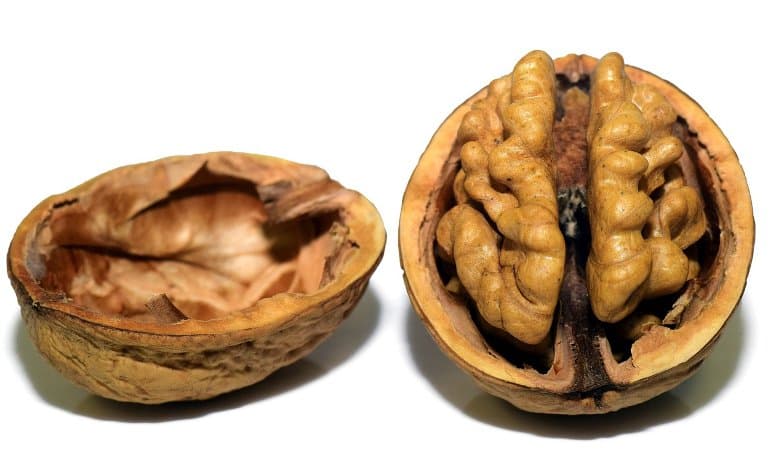Summary: Teens who added walnuts to their diet for 100 days showed improvements in attention function, and for those with ADHD, frequent walnut consumption was associated with improvements in behavior. Researchers also noted an increase in fluid intelligence in those who frequently consumed walnuts as part of their daily diet.
Source: ISGLOBAL
Eating walnuts on a regular basis could benefit the cognitive development of adolescents and contribute to their psychological maturation.
These are some of the conclusions reached by a study led by the Institut d’Investigació Sanitària Pere Virgili (IISPV), in which ISGlobal (a centre promoted by “la Caixa” Foundation) and the Hospital del Mar Medical Research Institute (IMIM) have collaborated.
This is unprecedented research; while there have been previous studies on the effect of nuts on our health, the impact of their consumption at such a critical stage for cognitive development as adolescence has never been examined.
Walnuts are rich in alpha-linolenic fatty acid (ALA), a type of omega-3 that plays a fundamental role in brain development, especially at this life stage. In the words of Jordi Julvez, principal investigator and coordinator of the NeuroÈpia Research Group of the IISPV, “adolescence is a time of great biological changes: hormonal transformation occurs, which in turn is responsible for stimulating the synaptic growth of the frontal lobe.
This part of our brain is what enables neuropsychological maturation, i.e., more complex emotional and cognitive functions. Neurons that are well nourished with this type of fatty acids will be able to grow and form new, stronger synapses.”
In the study, which has been published in the journal eClinicalMedicine (belonging to the prestigious scientific publishing house The Lancet Discovery Science), 700 secondary school students between 11 and 16 years of age from 12 differents high schools in Barcelona participated voluntarily.
They were randomly divided into two groups: the control group, which received no intervention of any kind, and the experimental group, which received sachets containing 30 grams of walnut kernels, indicating to the young people who participated that they could consume them daily for a period of 6 months.
The research team found that adolescents who ate walnuts for at least 100 days (not necessarily continuosly every day) increased their attention functions, and those who had some symptoms of attention deficit hyperactivity disorder (ADHD) improved their behavior significantly (in class, they paid more attention to the teacher and were less hyperactive).
On the other hand, there was also an increase in functions related to fluid intelligence, which, in the words of Jordi Julvez, “it is less influenced by learning; it is inherent to the person biology staus. We assessed it with increasingly complex tests, such as having adolescents figure out what pattern a row of letters followed, for example.”
“Overall, no significant differences were found in the intervention group in relation to the control group,” he adds, “but if the adherence factor is considered, then positive results are observed, since participants who most closely followed the guidelines – in terms of the recommended dose of walnuts and the number of days of consumption – did show improvements in the neuropsychological functions evaluated.”
Thus, this study demonstrates that following a healthy diet is as important as maintaining these habits over time and not abandoning them for adolescents to develop correctly on a cognitive and psychological level.

“If boys and girls would heed these recommendations and actually eat a handful of walnuts a day, or at least three times a week, they would notice many substantial improvements in cognitive abilities, and it would help them face the challenges of adolescence and entering adulthood.
“Adolescence is a period of great brain development and complex behaviors that requires a significant amount of energy and nutrients,” concludes Ariadna Pinar, first author of the article.
This study was funded by the Instituto de Salud Carlos III through projects CP14/00108, PI16/00261 and PI21/00266 (co-funded by the European Union through the “A way to make Europe” program). The California Walnut Commission (CWC) has supported the project by providing the walnuts needed for the intervention. None of the funding entities participated in the design or discussion of the results of the study.
Soon, the research team itself will conduct a study (this time it will be observational and will also be supported by the CWC) to determine whether the consumption of walnuts and nuts in general during pregnancy influences cognitive development and psychological maturation in infants.
Thus, this second research goes a step further in relation to the work presented in this press release as it aims to demonstrate that these aspects of growth can be enhanced even in the mother’s womb and from early childhood by following good dietary habits.
About this diet and neurodevelopment research news
Author: Èlia Pons
Source: ISGLOBAL
Contact: Èlia Pons – ISGLOBAL
Image: The image is in the public domain
Original Research: Open access.
“Effect of Walnut Consumption on Neuropsychological Development in Healthy Adolescents: A Multi-school Randomized Controlled Trial” by Jordi Julvez et al. eClinicalMedicine
Abstract
Effect of Walnut Consumption on Neuropsychological Development in Healthy Adolescents: A Multi-school Randomized Controlled Trial
Background
Omega-3 fatty acids are critical for neuropsychological functioning. Adolescence is increasingly believed to entail brain vulnerability to dietary intake. The potential benefit on adolescent neurodevelopment of consuming walnuts, a source of omega-3 alpha-linolenic acid (ALA), remains unclear.
Methods
We conducted a 6-month multi-school-based randomised controlled nutrition intervention trial to assess whether walnut consumption has beneficial effects on the neuropsychological and behavioural development of adolescents. The study took place between 04/01/2016 and 06/30/2017 in twelve different high schools in Barcelona, Spain (ClinicalTrials.gov Identifier: NCT02590848). A total of 771 healthy teenagers aged 11–16 years were randomised into two equal groups (intervention or control). The intervention group received 30 g/day of raw walnut kernels to be incorporated into their diet for 6 months.
Multiple primary endpoints concerning neuropsychological (working memory, attention, fluid intelligence, and executive function) and behavioural (socio-emotional and attention deficit hyperactivity disorder [ADHD] symptoms) development were assessed at baseline and after intervention. Red blood cell (RBC) ALA status was determined at baseline and 6 months as a measure of compliance. Main analyses were based on intention-to-treat using a linear mixed-effects model. A per-protocol effect of the intervention was analysed using inverse-probability weighting to account for post-randomisation prognostic factors (including adherence) using generalised estimating equations.
Findings
In intention-to-treat analyses, at 6 months there were no statistically significant changes between the intervention and control groups for all primary endpoints. RBC ALA (%) significantly increased only in the intervention group, coefficient = 0.04 (95% Confidence Interval (CI) = 0.03, 0.06; p < 0.0001). The per-protocol (adherence-adjusted) effect on improvement in attention score (hit reaction time variability) was −11.26 ms (95% CI = −19.92, −2.60; p = 0.011) for the intervention group as compared to the control group, improvement in fluid intelligence score was 1.78 (95% CI = 0.90, 2.67; p < 0.0001), and reduction of ADHD symptom score was −2.18 (95% CI = −3.70, −0.67; p = 0.0050).
Interpretation
Our study suggested that being prescribed eating walnuts for 6 months did not improve the neuropsychological function of healthy adolescents. However, improved sustained attention, fluid intelligence, and ADHD symptoms were observed in participants who better complied with the walnut intervention. This study provides a foundation for further clinical and epidemiological research on the effect of walnuts and ALA on neurodevelopment in adolescents.
Funding
This study was supported by Instituto de Salud Carlos III through the projects ‘CP14/00108, PI16/00261, PI21/00266’ (co-funded by European Union Regional Development Fund ‘A way to make Europe’). The California Walnut Commission (CWC) has given support by supplying the walnuts for free for the Walnuts Smart Snack Dietary Intervention Trial.






